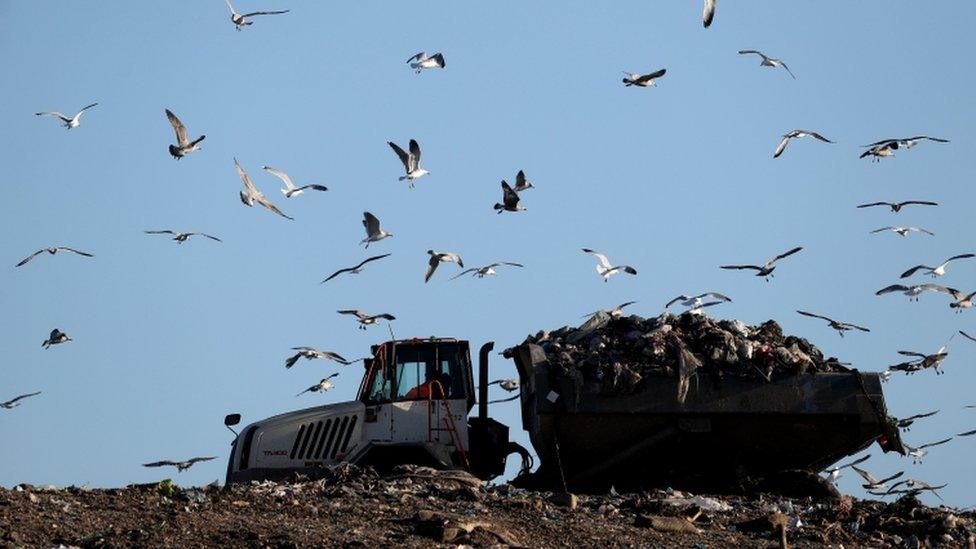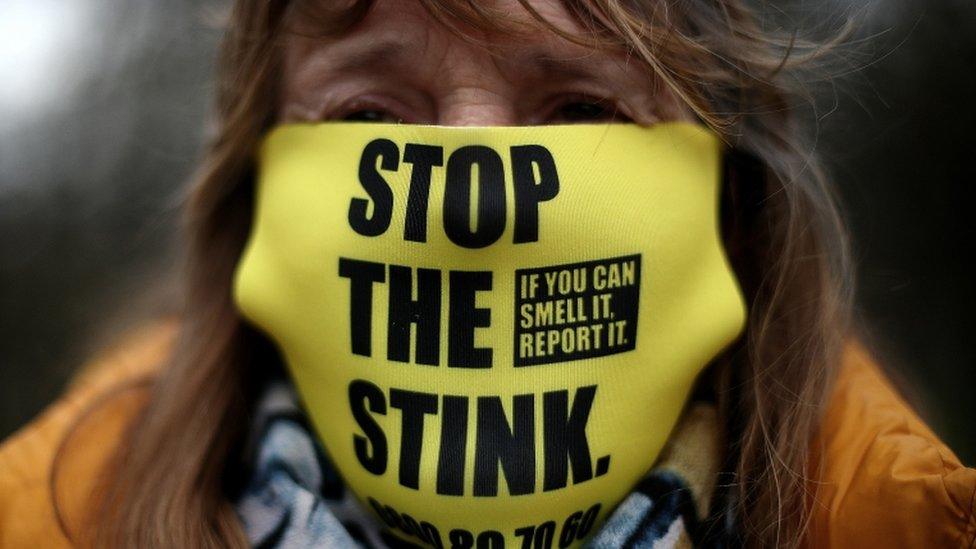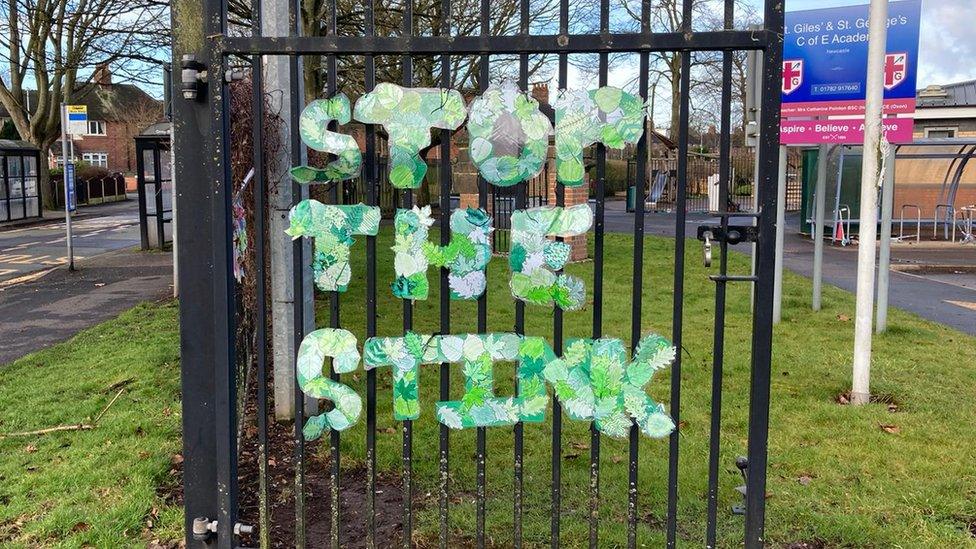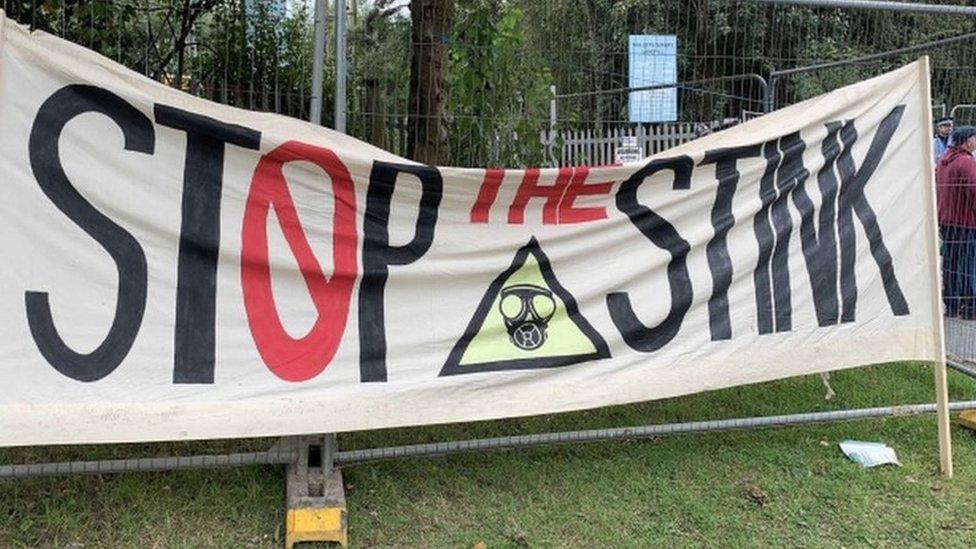Walleys Quarry: Call for PM to intervene at smelly landfill
- Published

People have long complained about smells from Walleys Quarry in Silverdale
The prime minister is being urged to intervene in the closure of a landfill site blighted by strong odours.
People in Silverdale, Staffordshire, have long demanded more stringent action over noxious emissions from Walleys Quarry.
Part of the site will be capped in the coming months, but it is due to continue taking deliveries of waste until the end of 2026.
County councillors have asked Boris Johnson to help speed up its closure.
The site's operators said that despite a spike in January, emissions from the site have continued to drop.
On Tuesday, the council's health scrutiny committee agreed to write to Mr Johnson to ask for urgent intervention, the Local Democracy Reporting Service said.
Councillor Julie Cooper said: "What we really want is to close the quarry as soon as possible.
"That's the only thing that will satisfy the residents of Newcastle Borough."

Thousands of complaints have been made about the odours
Dr Richard Harling, the council's director of health and care, said he had been "reasonably optimistic" in the autumn that conditions were improving, but said there had been a spike in odours in January.
He said the council should be "lobbying for a decisive and urgent solution" and called for the closure of the site to be brought forward.
In a report, Alec Dobney from the UK Health Security Agency said its data until 2022 showed people around the site were having "continuing exposure" to hydrogen sulphide - a poisonous, corrosive gas with an eggy smell.
He said risk to long-term public health was deemed to be low, but recommended steps were put in place to reduce odours and hydrogen sulphide "as soon as possible".
A spokesman for Walleys Quarry Ltd said the Environment Agency had confirmed fluctuations at the site were caused by improvement works and the weather but the changes in January "posed no risk to health".
Overall trends, it said, showed levels of hydrogen sulphide was reducing.

Follow BBC West Midlands on Facebook, external, Twitter, external and Instagram, external. Send your story ideas to: newsonline.westmidlands@bbc.co.uk, external
Related topics
- Published3 February 2022

- Published17 January 2022

- Published17 December 2021

- Published14 December 2021

- Published15 October 2021

- Published5 October 2021
